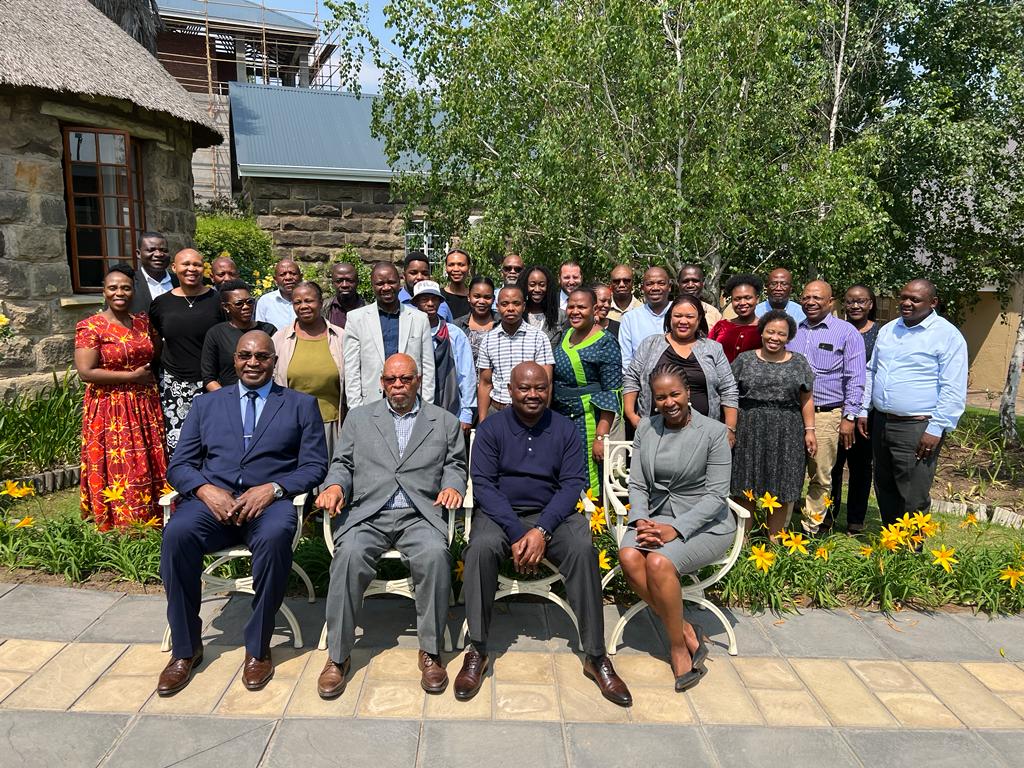In partnership with OutRight Action International, a leading advocacy organization for the human rights of lesbian, gay, bisexual and transgender (LGBTIQ) people, the International Commission of Jurists (ICJ) held a workshop to engage the Lesotho judiciary on the human rights of LGBT individuals in the country. In particular, the workshop unpacked how the judiciary could be a key role player in ensuring that the human rights of LGBTIQ persons are upheld.
In his opening remarks, which the ICJ publishes today, Lesotho’s Chief Justice, Sakoane
Sakoane, summarized key legal developments in the protection of the human rights of
LGBTIQ people, and emphasized the importance of ensuring access to justice for
marginalized communities in Africa, including LGBTIQ persons. Calling for the “cultivation
of an LGBTIQ sensitive culture”, the Chief Justice noted that “in this Kingdom of Lesotho,
the LGBTIQ community factually exists as part of society”. He mentioned, however, that
“there is no local jurisprudence yet on what these rights mean for the LGBTIQ
community”, even though the Constitution “guarantees two important rights: the right to
respect for private and family life (in section 11) and freedom from discrimination (in
section 18)”.
Reacting to the comments of the Chief Justice, Giselle Ratalane of The People’s Matrix, a
local LGBTIQ advocacy group, noted:
“Lesotho needs robust and clear legislation that protects minority interests so that
human rights violations against [LGBTIQ persons] are correctly indexed in national
records. As it currently stands, we are unable to discern human rights violations
targeted at LGBTIQ groups as they are not legally recognized in domestic law in
Lesotho.”
“Our interaction with the Lesotho judiciary has reinforced our view that there is a need
for such legislation, which would empower judges so that they can execute their
duties without discrimination or discriminatory impact as they are dictated by the law
to carry out their duties.”
Building on Ratalane’s comments, Khanyo Farise, Africa Advocacy Officer at Outright
International, commented that:
“The Lesotho judiciary’s active engagement with and on human rights and LGBTIQ
people is an important activity towards ensuring the full enjoyment of a range
fundamental human rights by LGBTIQ people in Lesotho. This can be a positive
example to other judiciaries in Africa and around the world.”
“Judges and judicial officers play an important part in ensuring access to justice for
LGBTIQ+ people, but also have an important role in producing judgments which can
advance their human rights.”
The ICJ is encouraged by these developments, including, in particular, the willingness of
members of the judiciary in Lesotho to understand the plight of many LGBTIQ persons,
as well as the relevance and applicability of international human rights principles to their
predicaments.
“LGBTIQ persons in Lesotho, as elsewhere, continue to be subjected to harassment, discrimination, abuse and violence on the basis of their real or imputed sexual orientation and gender identity.” said Mulesa Lumina, ICJ Africa Communications and Legal Officer.
“We will continue working with partners, such as the People’s Matrix and Outright International, to ensure the enforcement of Lesotho’s obligations under international human rights law, which entitle LGBTIQ persons to the full range of human rights without discrimination”, she concluded.
Chief Justice Sakoane Sakoane’s opening remarks is available here
Contact
Mulesa Lumina, Communications and Legal Officer – ICJ Africa Programme,
e: Mulesa.Lumina@icj.org.
Kaajal Ramjathan-Keogh, Director – ICJ Africa Programme, e: Kaajal.Keogh@icj.org.
Background
The workshop took place in Maseru on 11 October 2022 and brought together high court
judges and magistrates who actively engaged the facilitators from ICJ, Outright
International and the People’s Matrix about issues related to sexual orientation and
gender identity, gender expression (SOGIE), the obstacles to the realization of the human
rights of lesbian, gay, bisexual, transgender and intersex (LGBTIQ) persons, globally and
in Lesotho.
As a State Party to a number of international human rights instruments, including the
International Covenant on Civil and Political Rights (ICCPR), the African Charter on Human
and Peoples’ Rights (the African Charter) and the Protocol to the African Charter on
Human and Peoples’ Rights on the Rights of Women in Africa (Maputo Protocol), Lesotho
must ensure that LGBTIQ persons are protected from violence and discrimination and
that their dignity and right to equality is upheld.
The Yogyakarta Principles and the Yogyakarta Principles Plus 10 affirm the human rights
of LGBTIQ people and are an authoritative guide on the obligations of States as regards
the application of international human rights law and standards in relation to sexual
orientation, gender identity, gender expression and sex characteristics. Furthermore, the
landmark Resolution 275 of the African Commission on Human and Peoples’ Rights on
Protection against Violence and other Human Rights violations against Persons on the
basis of their real or imputed sexual orientation or gender identity strongly urges all to
put a stop to violence and discrimination against LGBTIQ persons. It also reiterates that
the African Charter protects the human rights of all persons, including LGBTIQ persons,
to non-discrimination, equality, life, dignity and freedom from torture.




